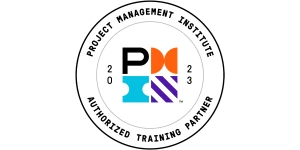What Makes a Fantastic Six Sigma Project Manager?
So you’ve got your Six Sigma certificate? But now what do you do? Where do you even begin? Being a Six Sigma project manager can be hard work, but it’s also very rewarding. The hardest part is over. Now you just need to demonstrate the same level of expertise as a Six Sigma project manager. But what does that entail? This article will answer just that question! Allow us to illustrate the soft skills and experience needed to make the most of your new qualification.
Project Manager Qualifications
Six Sigma Project Management isn’t something you can just jump into. There are certain qualifications and degrees of experience necessary to doing the job properly. Most project managers will have some level of Six Sigma certification, specifically the Green Belt or Black Belt level, if not higher. The standard Yellow Belt certification isn’t normally enough to warrant a managerial role, as the level of skill and education required is higher than the Yellow Belt offers. A college degree in a relevant subject is always helpful as well, although management roles typically demand a postgraduate degree on top of this. Relevant industry and project experience are also important, particularly if you have previously worked in a management position, as these skills will bolster your chances of success.
Defining Six Sigma Project Management
Six Sigma is more than the typical project management enterprise. While it may be similar in its drive for process improvement, Six Sigma is a comprehensive new strategy for continuous improvement, relying on old concepts and new. We find that many project management strategies fall short due to non-value-adding practices and an inability to accurately measure the effectiveness of the methodology. Six Sigma relies on data, which drives valid process improvement and the elimination of defect.
Teamwork is the cornerstone of successful Six Sigma projects. Six Sigma enables you to take your project to greater levels of discipline, to ensure your staff is completely committed and motivated. Strong data gathering, effective analysis, and creative problem-solving skills are required if you want to make the most of your position and achieve the best results.
The Importance of Six Sigma Project Management
As a Six Sigma project manager, your job is in the title. You manage the project, whether it be to remove defect or improve processes. Your role is an important one, as it is up to you to lead the rest of the project team. This means providing support to Black Belts and engaging with Green and Yellow Belts to ensure group morale is strong.
You should have a wide-reaching perspective as the lead on the project. Looking at the big picture, so to speak, enables you to consider every fine detail and every consequence that could occur. Thinking in this way is what drives good project management, and it also helps when identifying problems and devising solutions. This may seem like a lot of work, but there are tools to help you, like DMAIC and Root Cause Analysis, as well as the rest of the team. The more time and effort you put in, the more they will put in. As a project manager, you are not just a leader, but a figurehead for the rest of the group.
SixSigma.us offers both Live Virtual classes as well as Online Self-Paced training. Most option includes access to the same great Master Black Belt instructors that teach our World Class in-person sessions. Sign-up today!
Virtual Classroom Training Programs Self-Paced Online Training Programs






